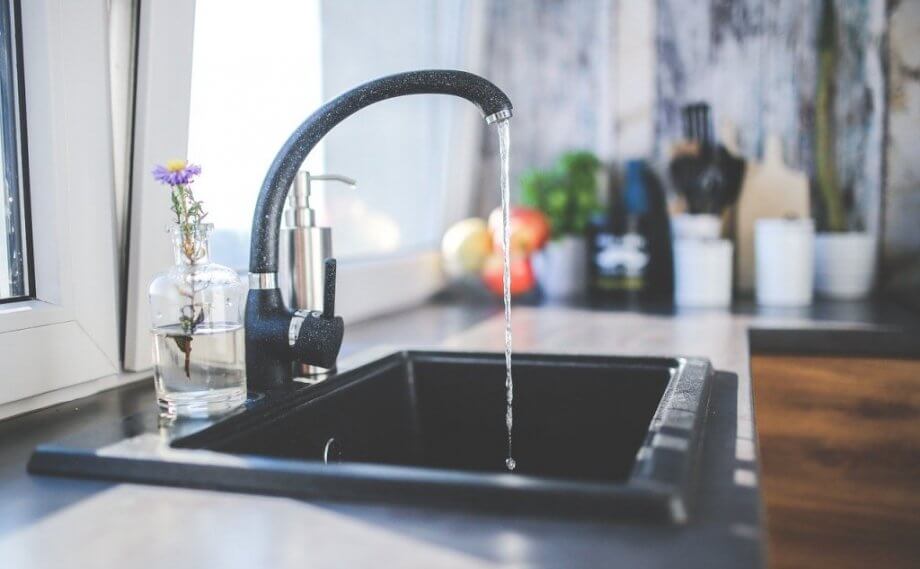Water is a necessity. We are fortunate to live in a country where clean, safe water is available at the turn of a tap; yet some hesitate to take advantage of this resource. There are several reasons to choose tap water over bottled water, cost certainly being one of them. However, the added fluoride in our local water is the best reason to start drinking from your faucet.
What is fluoride and why does it matter?
Fluoride is a naturally occurring mineral that is released from rocks into the soil, water and air. It helps protect against cavities by decreasing demineralization of enamel caused by certain oral bacteria. It also inhibits the growth of oral bacterial enzymes.
Because of its known healing benefits, fluoride is added to oral hygiene products such as toothpaste and oral rinses. Fluoride is also added to many municipal and other local water supplies.
Numerous studies report that the benefits of fluoride far outweigh any possible risks. The Centers for Disease Control (CDC) notes benefits of fluoride for children under eight years of age include strengthening the adult teeth developing under the gums. And a study of children in Juneau, Alaska (where the water supply is not fluoridated) showed increased tooth decay and dental costs resulting from the non-fluoridated water.
The dark side of fluoride (miniscule risks)
As with many things in life, too much of a good thing can be a bad thing. In very rare cases, excessive ingestion of fluoride can accumulate in the bones, causing harmful effects including increased risk of osteosarcoma (a cancer that starts in the bones). However, to be at risk, one would need to ingest enormous amounts of fluoride, such as eating a full tube of toothpaste.
We all use toothpaste: Do we need fluoride in our water?
The short answer is yes. Here are a few reasons why we advocate for fluoride in our water supply:
- Prevents tooth decay & protects against cavities. Fluoride in water is the most efficient way to prevent one of the most common childhood diseases – tooth decay. Community water fluoridation is so effective at preventing tooth decay that the Centers for Disease Control and Prevention named it one of 10 great public health achievements of the 20th century! Studies show that fluoride in community water systems prevents at least 25% of tooth decay in children and adults.
- Safe and effective. For 70 years, the best available scientific evidence consistently indicates that community water fluoridation is safe and effective. When municipalities add fluoride to the water supply, they adhere to the recommended limit of .7mg of fluoride per liter of water. Fluoridation has been endorsed by numerous U.S. Surgeons General, and more than 100 health organizations recognize the health benefits of water fluoridation for preventing dental decay, including:
- The Centers for Disease Control and Prevention
- American Medical Association
- World Health Organization
- American Dental Association
- American Academy of Pediatrics
- Saves money. Aside from the obvious savings over purchasing buying bottled water, there are abundant savings in choosing to drink fluorinated tap water. The average lifetime cost per person to fluoridate a water supply is less than the cost of one dental filling. The CDC reports that for most cities, every $1 invested in water fluoridation saves $38 in dental treatment costs.
- It’s natural. Fluoride is naturally present in groundwater and the oceans. Adding fluoride to water supplies can be likened to fortifying other foods and beverages, such as fortifying salt with iodine, milk with vitamin D, orange juice with calcium and bread with folic acid.
Is there fluoride in your tap water?
Despite the meaningful benefits of added fluoride to community water, some community water systems, including Wilmington and parts of Methuen, do not add fluoride to their town water supply. And many condominium and apartment complexes in Middlesex County with independent water systems to supply their residents do not fluoridate their water.
About 70% of Massachusetts towns do offer fluorinated water. The State Department of Public Health recommends a limit of .7mg per liter, to which Massachusetts strictly adheres. To find out if your community adds fluoride to the water supply, visit https://nccd.cdc.gov/doh_mwf/Default/Default.aspx or check with the Department of Public Works in your town.
If you have questions about fluoridated water and its impact on your oral health, please feel free to discuss with your dentist.

